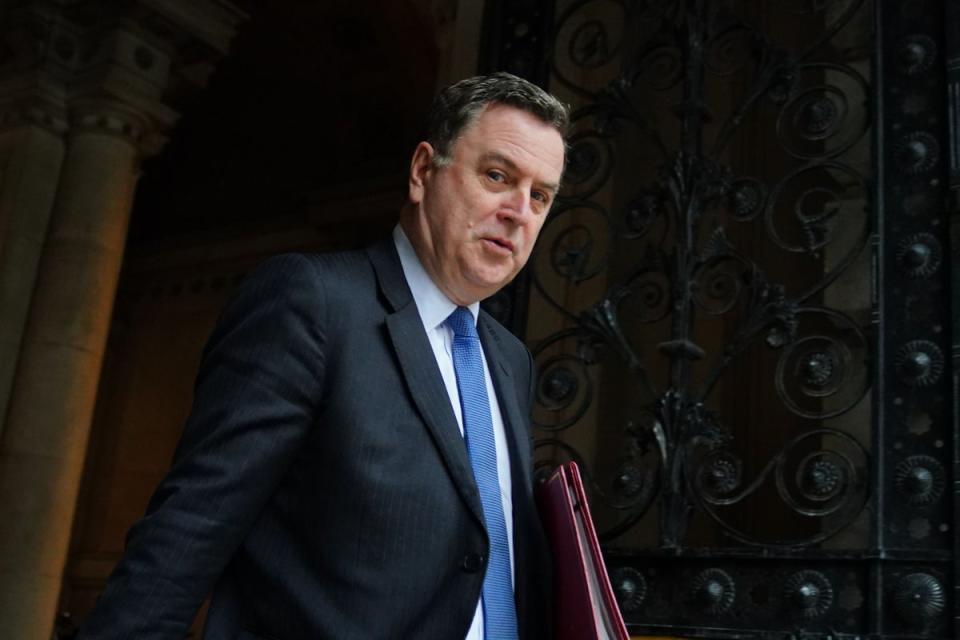Disabled people fear losing vital support under ‘cruel’ government PIP voucher plan
People with disabilities have criticised the government’s plans to replace Personal Independent Payments (PIP) with vouchers as “cruel” and “degrading”.
Those currently receiving financial support to help with the extra costs of being disabled including specialist counselling for mental health conditions and mobility cars to get to hospital appointments say the proposed reforms are “scary” and “backward”.
The proposed changes will reportedly target those with what the government terms mild mental health conditions. But critics have accused the PM of using mental health as a political culture war that “dehumanises” disabled people.
Rachel Rimmer, 37, from Oxfordshire has a rare autoinflammatory condition called Mevalonate Kinase Deficiency (MKD) and uses PIP to help with her vital personal care.
The complex condition took 16-years to diagnose despite having symptoms from birth as doctors considered other possible diagnoses including as Rheumatoid Arthritis and Crohn’s Disease.
She said the government’s plans to replace PIP with vouchers are “backward” and prevent disabled people from living independently.

“It’s degrading and the trust between disabled people and the government has just been depleted,” she told the Independent. “Personal Independence Payments are exactly what it’s described to be. They’re for independence.”
“PIP payments give you more freedom to choose which store you buy from - it gives you a choice. Replacing them with vouchers is like saying that we don’t trust you not to buy things such as cigarettes or alcohol. It’s like we’re not human people.”
She said her main concern was that she doubts the vouchers will help pay for services such as cleaning, gardening or personal care that she relies on.
She added that she and many others have had to use PIP to pay for heating and also account for added food costs.
“There are extra costs I have with food shopping as well such as having to buy gluten and lactose-free foods. If you can’t get out to do your shop as well you have to pay extra for delivery,” she said.
Ms Rimmer, who founded the charity Rare Autoinflammatory Conditions Community UK (RACC), says replacing PIP payments would also impact people such as herself who use payments to fund mobility cars or taxis to get to doctor’s appointments or workplaces.
“I have a mobility car so for me I use my PIP for fuel every month to get to hospital appointments,” she said. “Some people I know also work with their conditions and tell me that PIP allows them to stay in work because it means they have money to get taxis to work or mobility car.”
She added: “Taking away PIP payments would take away the resources to be able to do that and actually contradicts the government’s claim that they’re doing this to get people into work.”

Ellen Clifford, 46, from London, who receives PIP for living with severe and enduring mental distress said she has been left with questions as to whether she would receive the psychiatric care she needs under the government’s “unworkable” plans.
“The mental health system has been so run down in recent years and is geared towards short-term interventions and getting back to work,” she told the Independent.
“To receive PIP you have to have a high level of support needs - you cannot get that help through the NHS now.
“To get the kind of therapy I need I have to pay for private therapy - how would vouchers deal with that? I don’t think they could and that is really worrying.”

Peter Rogers, 55, from Walthamstow, east London, uses his PIP payments to pay for specialist mental health treatment to help his severe social anxiety.
He told the Independent: “I have absolutely no idea what kind of voucher would help me - is my counsellor going to accept vouchers?
“This is the government not trusting us to know the best use of the money. It’s purely a political move to blame disabled people.”
The plans, which will be consulted on over the coming months, is expected to make reference to similar models in other countries, such as New Zealand, where a health practitioner verifies extra costs, and Norway, where a letter from a GP outlines costs associated with someone’s condition.
Alongside the paper, Mel Stride, the Work and Pensions Secretary, also addressed the Commons, saying: “This government’s priority is to make sure that our welfare system is fair and compassionate. Fair on the taxpayer, by ensuring that people of working age who can work, do work, and fair on those who are in most need of the state’s help.”
He added that the consultation will be “exploring whether people with specific health conditions and disabilities can be taken out of Pip assessments altogether”.
James Taylor, executive director of strategy at disability equality charity Scope, said: “It’s hard to have any faith that this consultation is about anything other than cutting the benefits bill, no matter the impact.
“Life costs a lot more for disabled people, including people with mental health conditions. Threatening to take away the low amount of income PIP provides won’t solve the country’s problems.
“Many of the current issues the Prime Minister speaks about are due to our crumbling public services, poor quality jobs and increasing rates of poverty. Not because of a so-called ‘mental health culture’ that’s gone too far.
“The government needs to end this reckless assault on disabled people and focus on how to fix the real underlying issues.”

